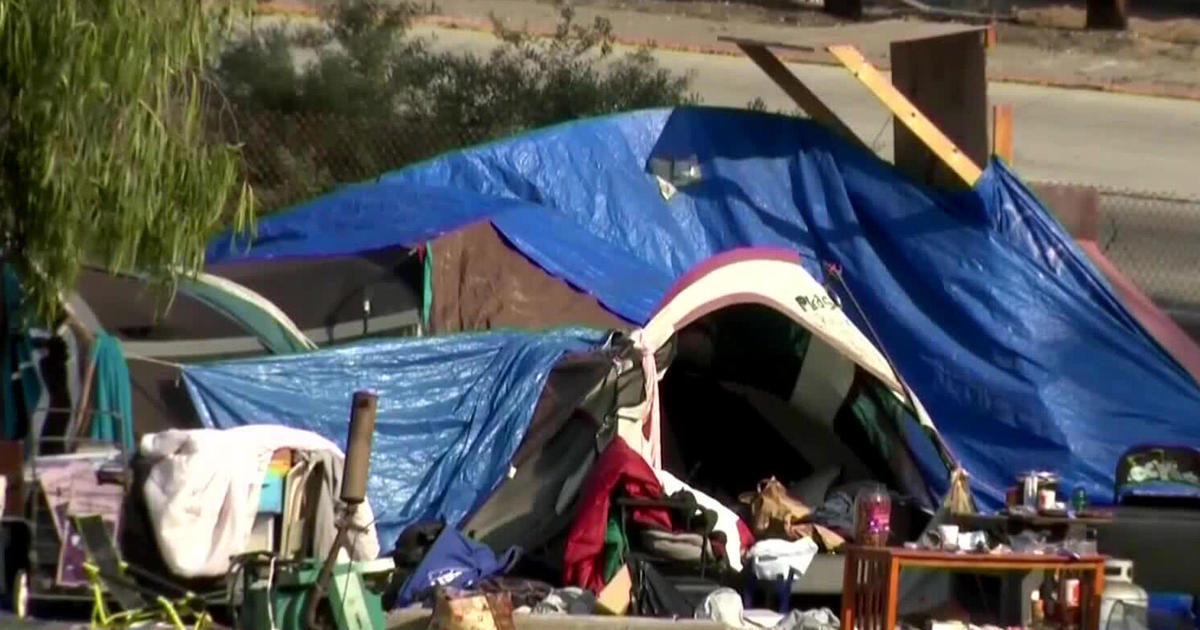These are the gun control laws passed in 2022
Several high-profile mass shootings and a sustained rise in gun violence across the United States in 2022 have spurred law enforcement officials and lawmakers to push for more gun control measures.
President Joe Biden in June signed into law the first major gun safety legislation passed in decades. The measure failed to ban any weapons, but it includes funding for school safety and state crisis intervention programs. Many states -- including California, Delaware and New York -- have also passed new laws to help curb gun violence, such as regulating untraceable ghost guns and strengthening background check systems.
The year 2022 is the second-highest year of mass shootings in the United States on record, according to data compiled by the Gun Violence Archive, a non-profit tracking gun violence incidents across the country.
There have been at least 647 mass shootings through December 31 this year. The country saw 692 mass shootings in 2021, the worst year on record since the Gun Violence Archive began tracking mass shootings in 2014.
The Gun Violence Archive, like CNN, defines a mass shooting as one in which at least four people are shot, excluding the shooter.
There is a direct correlation in states with weaker gun laws and higher rates of gun deaths, including homicides, suicides and accidental killings, according to a January study published by Everytown for Gun Safety, a non-profit focused on gun violence prevention.
Not everyone agrees increased gun control is the answer. Some Americans advocate for their right to keep and bear arms, enshrined in the Constitution, while others argue gun control measures save lives and do not infringe citizen rights.
Amid the debate, some lawmakers have forged ahead with passing gun control laws.
"States continue to lead on gun safety, passing new and innovative policies that we will work to replicate across the country while continuing to secure significant investments in community violence intervention programs," said Shannon Watts, founder of Moms Demand Action, which has been fighting for gun safety measures since the 2012 Sandy Hook Elementary School shooting in Connecticut, which killed 20 children and six educators.
"This progress and our electoral victories in November shows that the gun violence prevention movement is stronger than ever and sets the stage for continued progress in the new year," Watts continued.
Here is a summary of the state and federal laws approved in 2022:
Federal legislation
On June 25, Biden signed into law the Bipartisan Safer Communities Act after the House and the Senate approved the measure. The package represents the most significant federal legislation to address gun violence since the expired 10-year assault weapons ban of 1994.
"God willing, it's going to save a lot of lives," Biden said at the White House as he signed the bill.
The package includes $750 million to help states implement and run crisis intervention programs, which can be used to manage red flag programs, as well as for other crisis intervention programs such as mental health, drug and veteran courts.
Red flag laws, approved by the federal measure, are also known as Extreme Risk Protection Order laws. They allow courts to temporarily seize firearms from anyone believed to be a danger to themselves or others.
The legislation encourages states to include juvenile records in the National Instant Criminal Background Check System, which would provide a more comprehensive background check for people between 18 and 21 who want to buy guns.
It also requires more individuals who sell guns as primary sources of income to register as Federally Licensed Firearm Dealers, which are required to administer background checks before they sell a gun to someone.
The law bars guns from anyone convicted of a domestic violence crime who has a "continuing serious relationship of a romantic or intimate nature." The law, however, allows those convicted of misdemeanor domestic violence crimes to restore their gun rights after five years if they haven't committed other crimes.
California
California was ranked the top state in the nation for gun safety in 2021. It has the strongest system in the nation for removing firearms from people who become prohibited from having them, according to the Giffords Law Center to Prevent Gun Violence.
California Gov. Gavin Newsom in July signed a package of five bills on gun safety after they were passed by the California State Senate.
On July 1, Newsom signed AB 2571, which prohibits the gun industry from marketing firearm-related products to minors, as well as AB 1621, which further restricts ghost guns, including the parts used to build them.
On July 12, the governor signed AB 1594, legislation establishing a firearm industry standard of conduct to promote "safe and responsible firearm industry member practices," the bill states.
Also included in the package is AB 2156, signed on July 21, which cracks down on the manufacture of firearms by prohibiting any person, regardless of federal licensure, from manufacturing firearms without a state license. It also prohibits unlicensed individuals from using 3D printing to manufacture any firearm or precursor part.
The last bill, signed on July 22, is SB 1327. It allows private citizens to bring civil action against anyone who manufactures, distributes, transports or imports assault weapons or ghost guns, which are banned in the state.
Colorado
Colorado Gov. Jared Polis signed House Bill 22-1086, or The Vote Without Fear Act, on March 30.
The law prohibits a person from openly carrying a firearm within any polling location or central count facility.
It also bans individuals from open carrying within "100 feet of a ballot drop box or any building in which a polling location or central count facility is located," while election activity is in progress, according to the legislation. Violations are punishable by a maximum $1,000 fine, up to 364 days imprisonment in the county jail, or both.
Delaware
Delaware Gov. John Carney on June 30 signed a package of gun safety bills including legislation to prohibit assault weapons, regulate high-capacity magazines and strengthen background checks.
The Delaware Lethal Firearms Safety Act of 2022 prohibits the manufacture, sale, offer to sell, transfer, purchase, receipt, possession or transport of assault weapons in Delaware, subject to certain exceptions, according to HB 450.
The package also includes legislation to raise the minimum age requirement to purchase or possess a firearm from 18 to 21, ban the use of devices which convert handguns into fully automatic weapons and hold gun manufacturers and dealers "liable for reckless or negligent actions that lead to gun violence," the bill states.
Illinois
Illinois Gov. JB Pritzker signed two bills to address secure storage of firearms and regulating ghost guns.
On May 18, the governor signed HB 4383, which prohibits individuals from selling or possessing ghost guns and ensures all firearms are serialized, allowing law enforcement to better trace them.
Pritzker later signed HB4729 on June 10, which requires the Department of Public Health to develop and implement a two-year public awareness campaign focused on safe gun storage, which includes sharing information about safe gun storage, the bill says.
Maryland
Maryland Gov. Larry Hogan announced on April 8 he would allow Senate Bill 387, which bans the sale or possession of ghost guns, to become law without his signature, noting it doesn't go far enough in taking "decisive action to hold violent criminals accountable."
The bill, which took effect on June 1 after bipartisan support, expands the definition of "firearm" to include an unfinished frame or receiver. It requires the Secretary of State Police to maintain a system to register firearms imprinted with serial numbers and "prohibits a person from purchasing, receiving, selling, offering to sell, or transferring an 'unfinished frame or receiver' or a firearm unless imprinted with specified information," the bill states.
The law also requires the governor to allocate $150,000 in the annual state budget to fund registration proceedings.
New Jersey
New Jersey Gov. Phil Murphy on July 5 signed seven gun safety bills, six of which were part of his Gun Safety 3.0 package he introduced to the state legislature in April 2021.
The package includes legislation which would allow the state's attorney general to sue members of the firearm industry for violations stemming from the sale or marketing of firearms, the bill states.
Also included in the package is legislation to regulate the sale of handgun ammunition, developing a system of electronic reporting of these sales; and require training prior to the issuance of a gun purchaser identification card with a validity date of 10 years.
Another bill in the package mandates firearm owners who become state residents to obtain a Firearm Purchaser Identification Card and register out-of-state acquired handguns, according to the bill.
On December 22, Murphy signed another gun safety bill strengthening the state's firearm licensing laws and established a list of 'sensitive places' where concealed carry is prohibited, including playgrounds, bars and restaurants serving alcohol, train stations, and polling places.
New York
Gov. Kathy Hochul signed a package of bills and an additional piece of legislation to address a wide range of gun safety issues.
Hochul signed a gun safety package on June 6, which includes bills requiring microstamping on handguns, strengthen the state's extreme risk and firearm purchase permit law, raise the minimum age to purchase semi-automatic rifles to 21 and enhance information sharing between state, local and federal agencies when guns are used in crimes.
Following the Supreme Court decision on June 23 to strike down a New York gun law enacted more than a century ago which places restrictions on carrying a concealed handgun outside the home, Hochul signed legislation to strengthen the state's gun laws and bolster restrictions on concealed carry weapons.
The law, which takes effect on September 1, will expand eligibility requirements in the concealed carry permitting process, restrict the carrying of concealed weapons in sensitive locations and establish state oversight over background checks for guns and regular checks on license holders for criminal convictions, according to the legislation.
Oregon
In the November 2022 US midterm elections, Oregon voters enacted a gun safety ballot measure, Measure 114, which strengthens background checks and prohibits the sale and transfer of ammunition magazines holding more than 10 rounds.
The measure also closes the "Charleston Loophole," which allows gun purchases to move forward by default after three days even if a background check has not been completed. It requires state police to complete background checks on individuals before a gun sale or transfer is made.
Rhode Island
Rhode Island Gov. Daniel McKee signed three gun safety bills on June 21. They prohibit high-capacity magazines, ban the open carry of rifles and shotguns in public and raise the legal age to purchase firearms or ammunition from 18 to 21, with exceptions for law enforcement officers.
One of the bills also changes the definition of "rifle" and "shotgun" consistent with federal law.
Vermont
Vermont Gov. Phil Scott signed into law a package on March 25 banning firearms from hospital buildings and prohibits the transfer of firearms between unlicensed people.
The governor vetoed a similar bill, S.30, in February which would have closed the "Charleston Loophole."
The new law, S.4, addresses the policy by extending the time period to seven days for the federal government to complete a background check before an individual can purchase a firearm. It also strengthens protections for victims of domestic violence, according to the bill.
Washington
Washington Gov. Jay Inslee signed three gun safety bills into law on March 23.
HB 1705 prohibits the manufacture, sale, purchase or possession of ghost guns, while HB 1630 prohibits the open carry of firearms at local government meetings and restricts them at school board meetings and election-related locations.
The third bill, SB 5078, prohibits high-capacity magazines, defined as an "ammunition feeding device with the capacity to accept more than 17 rounds of ammunition," the bill states.



